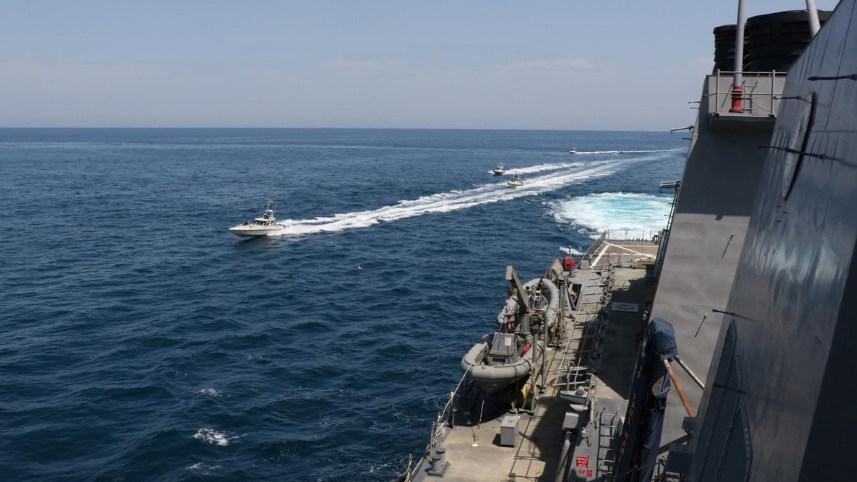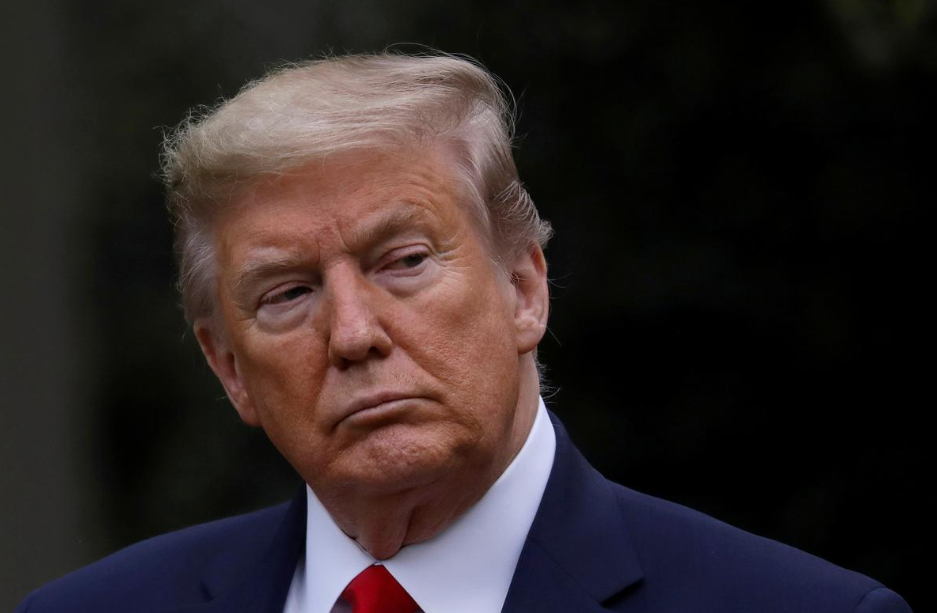Eleven vessels from Iran's Islamic Revolutionary Guard Corps Navy (IRGCN) came dangerously close to U.S. Navy and Coast Guard ships in the Gulf, the U.S. military said on Wednesday, calling the moves "dangerous and provocative."
While such interactions had occurred occasionally a few years ago, they had stopped in recent years, and this incident comes at a time of increased tensions between the two countries.

According to the statement, the Iranian vessels approached six U.S. military ships while they were conducting integration operations with Army helicopters in international waters.
At one point, the Iranian vessels came within 10 yards of the U.S. Coast Guard cutter Maui. The U.S. ships issued several warnings through bridge-to-bridge radio, blasts from the ships' horns and long-range acoustic noise maker devices. The Iranian ships left after about an hour, the statement added.
There was no mention of the incident in Iranian media.
"The IRGCN's dangerous and provocative actions increased the risk of miscalculation and collision, (and) were not in accordance with the internationally recognized Convention on the International Regulations for Preventing Collisions at Sea," the U.S. military's statement said.
Tensions between Iran and the United States increased despite the dire consequences caused by the COVID-19 pandemic in the two countries.
In Iran, the country under the staunchest U.S. sanctions, government efforts in fighting the epidemic have been exceptionally beset by international trade and payment restrictions. As these hurdles mount grave difficulties for both nations to procure essential medical supplies and other items, the coronavirus has been spreading unhindered within the confines of its border.
While UN Secretary-General António Guterres, along with leaders of other major powers, have repeatedly called for sanctions lifted around the world, the Trump administration does not seem set to change course but rather intensified its confrontational approach against the hardest-hit Middle Eastern country.

U.S. President Donald Trump attends the daily briefing in the Rose Garden at the White House in Washington, DC, U.S., April 14, 2020. /Reuters
U.S. President Donald Trump attends the daily briefing in the Rose Garden at the White House in Washington, DC, U.S., April 14, 2020. /Reuters
U.S. President Donald Trump has repeatedly said he wants to apply "maximum pressure" on Iran to curb its nuclear and missile programs and end its support for proxy forces in the Middle East.
Earlier this month Trump said that Iran or its proxies planned a sneak attack on U.S. targets in Iraq, and warned they would pay a "very heavy price."
Maritime security sources said on Wednesday that a Hong Kong-flagged tanker was briefly detained in Iran after armed Iranian guards in speedboats directed the vessel into its waters while it was sailing through the Gulf of Oman.
The United Kingdom Maritime Trade Operations said Wednesday that Tuesday's episode was "assessed to be an isolated incident of state-based intervention, with no wider threat to maritime shipping in the region."
(WIth input from Reuters)
(Cover image: Four IRGCN vessels next to the guided-missile destroyer USS Paul Hamilton in the Gulf, April 15, 2020. /Reuters)